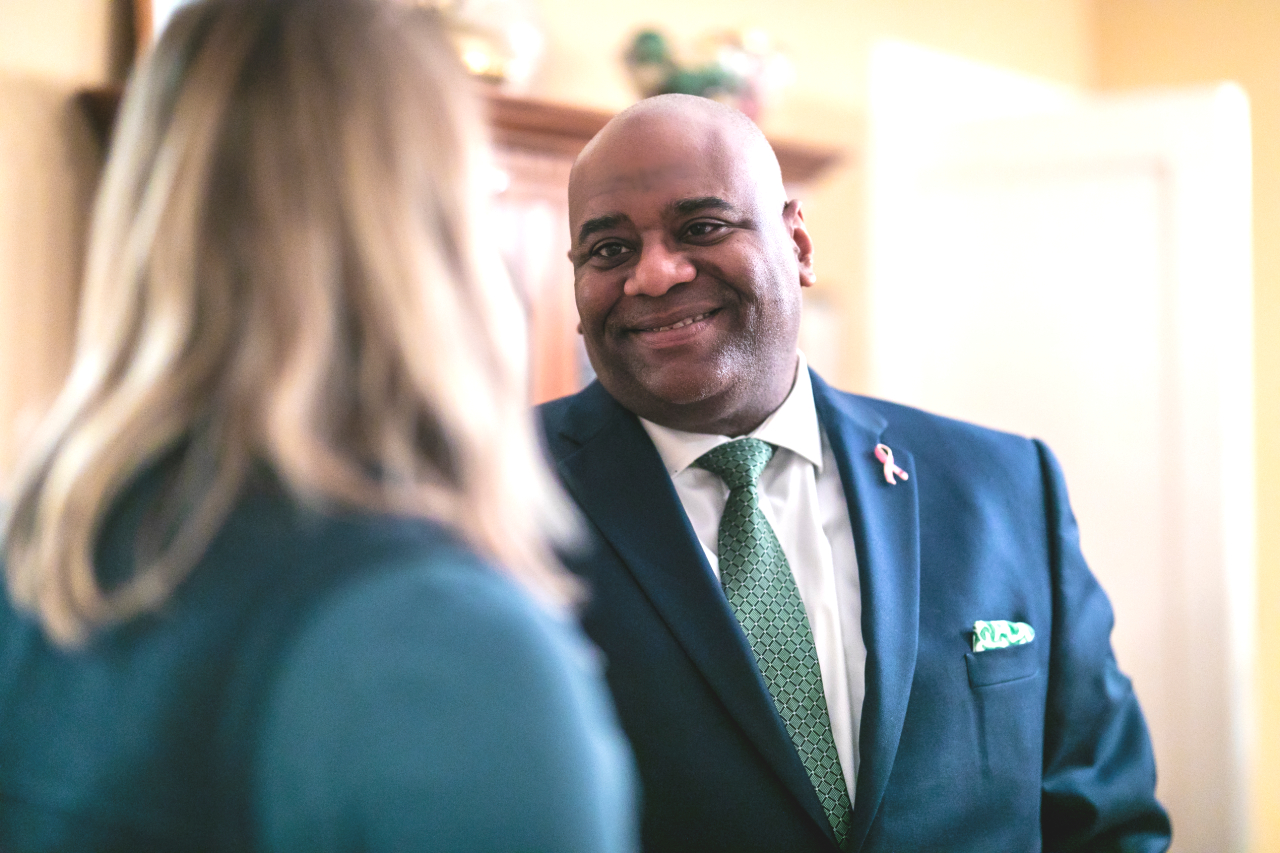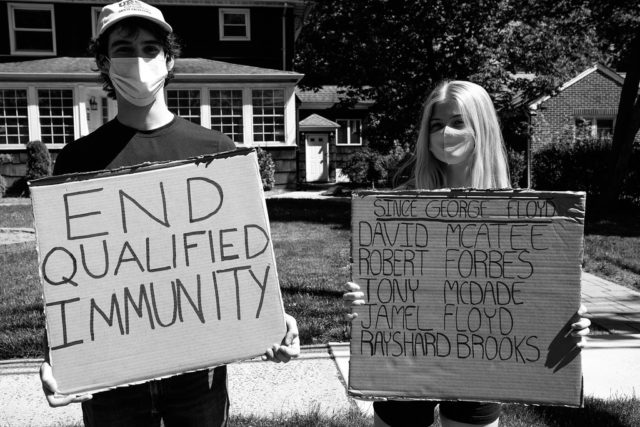A new Dane County Board resolution calls for the State of Wisconsin and the federal government to legally end qualified immunity for police, enabling civil lawsuits against law enforcement for misconduct and malpractice.
“The arguments you’re going to get against this,” says Dane County Supervisor Anthony Gray (District 14), a sponsor of the resolution, “are the very reason we need it.”
Gray first introduced the bill in late August and leadership immediately transferred it to the executive committee.
“I don’t know when it is going to come up because that is controlled by the leadership. It’s a controversial issue and sometimes it’s less comfortable for some folks to deal with controversial issues,” Gray says.
Qualified immunity is a defense that law enforcement and other government officials can raise in response to lawsuits seeking monetary damages for alleged civil rights violations.
“If you talk to police officers, they are going to say that it’s only civil. Well, yeah. It’s civil and that’s a big deal. That means before police officers shoot Black men down in the street, they have to think about their own personal well-being. They have to think about their family’s well-being,” Gray says. “And then law enforcement will make the argument: ‘Well, we don’t want our guys to hesitate. This bill is going to make them hesitate.’
“Here’s the thing: I want law enforcement officers to hesitate before they shoot us down in the street,” Gray continues. “I want them to take half a second extra to think, ‘Is this actually necessary? Is this the only way?’ Can we not deescalate? Can we not call in social workers and mental health workers? Can we not call in someone who is better equipped to handle this than perhaps law enforcement and avoid another murder of a young Black or brown man in the streets?’
“That half-a-second pause can literally mean the difference between life and death for us,” Gray adds.
The sponsors of the bill, along with Gray, include Dane County Supervisors Yogesh Chawla, Heidi Wegleitner, Michele Ritt, Holly Hatcher, and Michele Doolan.
The resolution states that the Dane County Board of Supervisors hereby “supports Wisconsin Assembly Bill 186 and Senate Bill 295 and similar State or Federal legislation which would remove qualified immunity as a defense against law enforcement misconduct at all levels of government.” The resolution further states that it will be included in Dane County’s Legislative that the Dane County Board Office and Legislative Lobbyist provide a copy of this resolution to Governor Tony Evers, the Dane County legislative delegation, U.S. Senators Tammy Baldwin and Ron Johnson, and the Wisconsin Congressional delegation.
“It’s not like we are just having this fight at the County level. This is a national fight – really an international fight. For people who are left of center, this isn’t a controversial idea,” Gray says. “It’s considered a requirement for comprehensive police reform and it’s the reason we don’t have a bill – but the Republicans wouldn’t move on this issue at all. They wouldn’t even negotiate.”

(Photo by Hedi Lamarr Photography)
The United States Supreme Court created the doctrine of “qualified immunity” in Pierson v. Ray in 1967 in a case litigated during the height of the civil rights movement. According to the resolution, it is based on an interpretation of United States Code § 1983, created by the 1871 Ku Klux Klan Act, where the Supreme Court majority interpreted “A
policeman’s lot is not so unhappy that he must choose between being charged with dereliction of duty if he does not arrest when he has probable cause, and being muleted in damages if he does.”
“I try to tell people that this is serious business and it’s not a coincidence that this exists,” Gray says. “Everybody knows the history of law enforcement in this country – that it grew out of the role that officers had in catching runaway slaves or punishing slaves that didn’t comply with whatever particular action that they were told to do.
“It’s based upon 1871’s Ku Klux Klan Act and so essentially what the act was trying to do was to create a consequence-free zone around law enforcement,” he adds. “They would argue that their job is so dangerous that they need a consequence-free zone. My argument is that when you have other people’s lives in their hands, there cannot be a consequence-free zone.”
Earlier this summer, Milwaukee County Board Resolution 21-462 affirmed Milwaukee County’s support for ending qualified immunity for law enforcement, as have many other cities around the country.
“Most police officers never draw their service weapons. The vast majority. Then you’ll see a pool of officers … a group of officers who not only draw it regularly but who have actually shot and killed three or four people over the past 10 years,” Gray says. “You’ve got to ask yourself what is the difference between the cohorts.”
Many activists have argued that qualified immunity causes communities to distrust or outright fear police because they are rarely held accountable for bad actions or the “bad apples.” Many politicians have shown apprehension about getting involved in the police reform debate, worried about getting labeled “anti-police.”
“I’m not anti-police. Every police officer I talk to tells me that it’s a few bad apples that do these things. So if that’s true, the only people who have anything to fear from this bill that [Rep.] Jonathan Brostoff (D-Milwaukee) introduced in the Legislature are the few bad apples … if you believe that theory,” Gray says.
Gray notes that it has been expensive for the taxpayer, too. According to the Marshall Project, from approximately 2010 to 2019, cities have had to pay large amounts in civil claims against police misconduct including $1.7 billion in New York, $467.5 million in Chicago, $116 million in Philadelphia, $57.7 million in Detroit and $40 million in Milwaukee.
“That’s just a small list. If you were to do that across the country the numbers would be exponential. It would be outrageous,” Gray says. “These are just a few places.”
Gray says that his next step is to get a commitment from leadership to bring the bill up for a vote.
“The public needs to know that this bill exists and is out there and if they demand it, it will get a vote,” Gray says. “I’m not trying to twist anybody’s arm in either direction … all I’m saying is, ‘Give me a straight up-and-down vote.’
“It’s in the executive committee right now and it hasn’t been scheduled for a vote so if people care about this, they need to start letting their Dane County Board Supervisors know.”
“This is something very dear to me. I’m a Black man and my son is a Black man. I want him to come home alive tonight.”




























